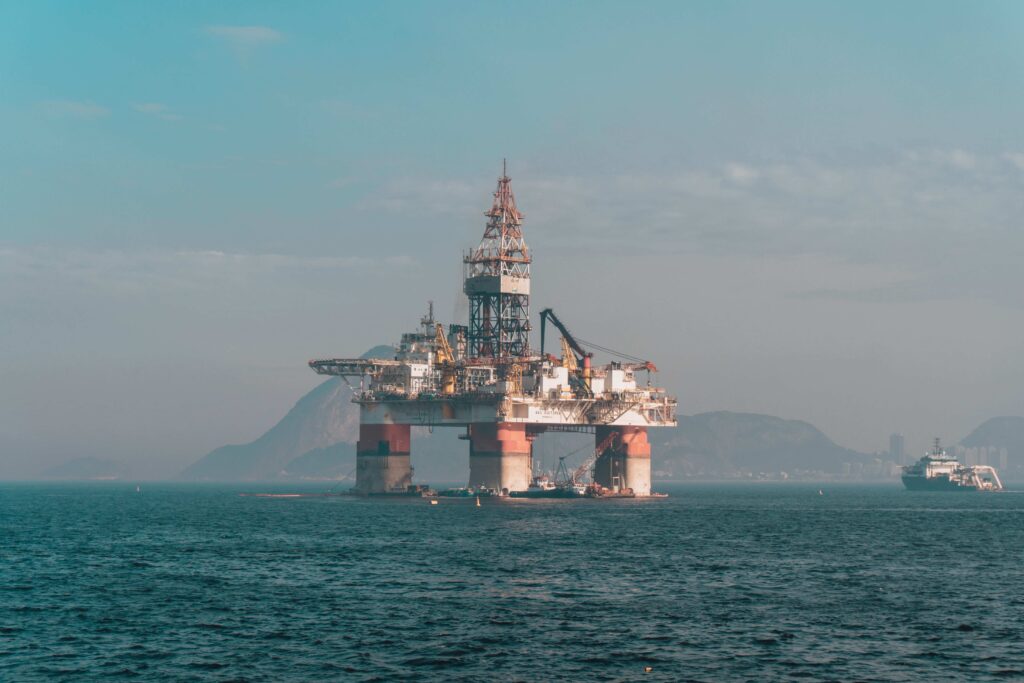Table of Content
ToggleIntroduction
Over the past few years, the Brazilian economy has faced significant challenges, including political instability and a weakened currency. Despite these obstacles, there are numerous opportunities for growth and development in the upcoming decade. As the country emerges from recession, several key industries are expected to drive its economic resurgence, offering potential for investors and entrepreneurs to capitalize on the nation’s growing demand for goods and services.
Brazil’s commitment to sustainable development and investment in infrastructure projects are poised to promote economic growth and stability. Agriculture, in particular, plays a critical role in the nation’s economy, and recent technological advancements have transformed the sector, offering new avenues for growth. Additionally, other sectors such as technology, renewable energy, and tourism are expected to contribute to the country’s economic expansion over the next ten years.
Key Takeaways
- Brazil’s economy presents various opportunities for growth and investment in the next decade, despite recent challenges.
- Agriculture remains a pivotal sector in the nation’s economy, while technology, renewable energy, and tourism offer new potential for expansion.
- Infrastructure projects and a focus on sustainable development may contribute to Brazil’s economic stability in the long run.
Economic Growth and Stability
The Brazilian economy holds significant opportunities in the next decade, underpinned by a focus on economic growth and stability. Within this context, there are several key sub-sections that are essential to understanding Brazil’s potential: fiscal reforms, inflation, and interest rates, and exchange rate policies.
Fiscal Reforms
Brazil has been taking steps to implement fiscal reforms to reduce its budget deficit and promote economic stability. These reforms aim to address structural imbalances in public finances while creating a more favorable environment for private investment. Among the key measures introduced are spending caps and changes in public pensions.
Spending Caps: The Brazilian government has adopted a constitutional amendment linking public spending to inflation, thereby limiting the growth of government expenditure. This measure will help keep public debt in check while ensuring fiscal discipline.
Public Pension Reforms: Brazil has made significant progress in reforming its pension system, which has long been a major source of fiscal pressure. Recent changes aim to increase the retirement age, alter the benefit calculation formula, and curb early retirement incentives. By streamlining pensions, Brazil can better manage its long-term fiscal liabilities and free up resources for productive investments.
These reforms, when combined, have the potential to put Brazil’s public finances on a more sustainable footing, facilitate economic growth, and reduce the burden on future generations.
Inflation and Interest Rates
Managing inflation and interest rates is crucial for the Brazilian economy’s stability and growth prospects. Over the years, Brazil’s central bank, the Banco Central do Brasil, has gradually gained credibility in its ability to maintain price stability through its inflation-targeting framework. In the coming years, it will be essential for the Brazilian authorities to remain vigilant on inflation trends and ensure that monetary policy is supportive of sustainable growth.
Inflation: Low inflation is critical for the Brazilian economy, as it helps maintain the purchasing power of consumers and fosters a stable environment for businesses to thrive. In recent years, Brazil has kept inflation within its target objectives, allowing for more predictable planning by both the public and private sectors.
Interest Rates: Interest rates play a central role in the Brazilian economy, impacting credit availability, investment decisions, and overall economic activity. The central bank’s pragmatic approach to the monetary policy has contributed to its credibility and encouraged economic growth by maintaining an accommodating interest rate environment.
With continued prudent monetary policy management, Brazil can promote an environment conducive to economic growth, stability, and job creation in the next decade.
Exchange Rate Policies
Exchange rate policies are essential to ensuring stability in Brazil’s external position and overall competitiveness. Brazil has a floating exchange rate, allowing market forces to determine the value of the Brazilian real relative to other currencies. This flexibility provides the Brazilian economy with several advantages, including the ability to absorb external shocks and adapt to changing global economic conditions.
Reserve Accumulation: Over the past decade, Brazil has accumulated substantial foreign reserves, increasing its resilience to external shocks in global markets. This buffer ensures that the country can adequately manage its external vulnerabilities, ensuring economic stability and growth prospects.
Exchange Rate Flexibility: The flexible exchange rate has allowed Brazil to maintain its competitiveness in global markets. In situations where the economy faces external headwinds, such as falling commodity prices or weaker demand for exports, a depreciating currency can help rebalance the external position and enhance competitiveness.
By maintaining a prudent approach to exchange rate policies and managing its foreign reserves wisely, Brazil is better positioned to navigate the challenges and opportunities of the international economy in the next decade. The combination of fiscal reforms, inflation and interest rate management, and exchange rate policies can contribute to a more sustainable and successful economic future for Brazil.
Sectorial Opportunities
Renewable Energy
Brazil has significant potential in renewable energy resources, such as hydroelectric, wind, solar, and biomass. Over the next decade, investments in these sectors are expected to grow, driven by the country’s commitment to reduce greenhouse gas emissions and increase energy security. Wind and solar power generation projects will see a surge due to advancements in technologies and equipment costs. Increased government support, private investments, and international partnerships will be crucial in developing Brazil’s renewable energy infrastructure.
Manufacturing and Industry 4.0
The rise of Industry 4.0 brings opportunities for advancement in Brazil’s manufacturing sector. The adoption of digital technologies, such as automation, artificial intelligence (AI), and the Internet of Things (IoT), will increase productivity and improve competitiveness. As a result, Brazil is likely to attract foreign investments and forge strong collaborations in advanced manufacturing industries, including aerospace, automotive, and electronics. The next decade will see Brazilian manufacturers embracing digitization, smart factories, and data-driven decision-making processes.
Agribusiness and Food Production
Brazil’s agribusiness plays a critical role in its economy, with significant contributions to exports and job creation. The next decade offers vast opportunities to enhance productivity and sustainability in food production. New technologies, such as precision agriculture, biotechnology, and genetically modified organisms, will be instrumental in increasing yields and reducing environmental impacts. Additionally, there is potential for growth in value-added processing and higher-value export markets, particularly in the meat, grains, and fruits sectors.
Digital Transformation and Innovation
The Brazilian economy will increasingly rely on digital transformation and innovation, fostering opportunities in sectors such as fintech, e-commerce, and telecommunication services. The expansion of high-speed internet and growing digital literacy will enable new businesses, services, and industries to emerge. As a result, Brazil is likely to attract startups, venture capital, and international investments in cutting-edge technologies like AI, blockchain, and cybersecurity. Improved regulations, supportive government policies, and strategic partnerships will help drive this digital transformation.
Infrastructure Development
Brazil’s infrastructure development presents several opportunities over the next decade. The country needs significant investments in transport, logistics, water, sanitation, and energy to meet demands and reduce inequalities. Public-private partnerships (PPPs), concessions, and privatization are critical policy instruments to facilitate investments in infrastructure projects. Key sectors may include roads, railways, ports, airports, urban mobility, and housing. Increased infrastructure spending will boost economic growth, job creation, and improve overall competitiveness in the country.
Tourism and Hospitality
The tourism and hospitality sector offers significant growth potential in Brazil, with opportunities to develop destinations, tourist attractions, events, and accommodations. The rise of experiential and niche tourism, such as eco-tourism, cultural tourism, and adventure travel, are emerging trends that can be capitalized on. Brazilian government initiatives aiming to simplify visa requirements, promote domestic travel, and attract foreign investments will be essential in driving the tourism sector forward in the next decade. Public and private partnerships will also help in promoting and developing tourism infrastructure and services.
Investment Landscape
The Brazilian economy presents numerous investment opportunities in the coming decade. This section will explore three key areas: Foreign Direct Investment, Public-Private Partnerships, and Capital Market Growth.
Foreign Direct Investment
Foreign Direct Investment (FDI) in Brazil has been significantly contributing to the country’s economic development. In recent years, Brazil has attracted global investors due to its stable political environment, economic growth, and the increasing size of its consumer market. These factors create a favorable climate for investment in key sectors such as infrastructure, renewable energy, agribusiness, and technology.
According to the United Nations Conference on Trade and Development (UNCTAD), Brazil ranked as the 4th largest recipient of FDI in the world in 2019. In the next decade, FDI will likely continue to play an essential role in Brazil’s economy, providing necessary capital for development projects and promoting technology transfer and innovation.
Some promising sectors for FDI in Brazil include:
- Infrastructure: Brazil will need significant investments in transport, energy, and water infrastructure to sustain its growing population and expand its economy.
- Renewable energy: The Brazilian government has been promoting the development of renewable energy sources, such as wind and solar power, creating opportunities for foreign investments in this sector.
- Agribusiness: Brazil has vast agricultural resources and potential, leading to opportunities for FDI in food production, processing, and export.
- Technology: As the Brazilian market becomes increasingly digital, foreign investments in technology, innovation, and R&D will be crucial for economic growth.
Public-Private Partnerships
Public-Private Partnerships (PPPs) are another potential area for investment in Brazil. PPPs involve collaboration between the public and private sectors, combining public oversight and resources with private sector efficiency and expertise. This model has been used to develop and improve infrastructure projects, such as roads, railways, ports, airports, and water and sanitation services.
In recent years, Brazil has implemented PPPs in several sectors, including transportation, health care, and education. Furthermore, the Brazilian government has committed to improving the investment climate for PPPs, providing legal frameworks, and reducing bureaucracy to facilitate more such projects in the future.
Areas of potential growth for PPPs in Brazil include:
- Transportation: Upgrading and expanding road, rail, and port infrastructure to decrease cargo transit time and lower transportation costs.
- Health care: Developing new hospitals and health care facilities, while also modernizing existing ones, to improve access to quality care and reduce health care disparities.
- Education: Expanding and modernizing educational facilities and learning resources, as well as improving access to quality education.
Capital Market Growth
Brazil’s capital markets, including its stock exchange (B3) and debt markets, offer attractive opportunities for investors over the next decade. The Brazilian capital markets have seen increased activity in recent years, driven by a more stable economic environment, low-interest rates, and regulatory reforms.
The growth of Brazil’s capital markets may provide favorable conditions for both equity and debt financing. In particular, the following trends are expected to drive market expansion:
- Equity financing: Increased initial public offerings (IPOs) and secondary share offerings, as Brazilian companies seek capital to grow and expand.
- Debt financing: The development of Brazil’s fixed-income market, including government and corporate bonds, providing diversified investment opportunities for both domestic and international investors.
- Financial innovations: The growth of fintech and digital banking in Brazil, leading to increased access to financial services for micro, small, and medium-sized enterprises.
In conclusion, the Brazilian economy presents a range of investment opportunities in the next decade. Whether through Foreign Direct Investment in key sectors, Public-Private Partnerships promoting infrastructure and social services, or the growth of capital markets, investors will find ample opportunities to participate in Brazil’s economic development.
Regional Development
Regional Economic Integration
Brazil’s economy is poised for growth in the next decade, with several factors contributing to regional development opportunities. The country’s regional economic integration is a key aspect of this progress, fostering economic cooperation and mutual benefit across various sectors. Increasing trade relations and the establishment of regional agreements with other Latin American countries will further strengthen the Brazilian economy.
Coordinated efforts, such as the Mercosur trade bloc, not only promote trade and investment among its members but also create a competitive environment that attracts international investors. Infrastructure projects, such as improved transportation networks and energy facilities, will further connect Brazil’s regions and enable smoother cooperation and communication, driving economic growth.
Urban and Rural Potential
Urban Growth and Innovation
Brazil’s urban areas, like São Paulo and Rio de Janeiro, have long been the driving force behind the country’s economic growth. As these areas continue to develop, they create new opportunities for industries, including technology, finance, and tourism.
Investments in infrastructure and public services can enhance the quality of life in these urban centers, attracting talent and fostering innovation. Initiatives that support entrepreneurship, such as incubator programs and investment funds, also contribute to a thriving business environment.
The development of more sustainable and inclusive urban planning strategies will alleviate social inequalities and enhance public spaces, making Brazilian cities more attractive and vibrant. Smart city technologies can further improve urban areas by enhancing connectivity, e-governance, and energy efficiency.
Rural Development and Agricultural Opportunities
The Brazilian economy is also expected to benefit from its rural potential, with the agriculture sector playing a crucial role in supporting growth. The country has vast areas of fertile land and ample water resources, making it a key global player in agricultural production.
Embracing technological advancements and sustainable farming practices, as seen in the development of Brazilian agriculture, can increase productivity and help the country meet increasing global demand for food and biofuel. Key areas of investment include:
- Precision agriculture for better resource management and crop yields
- Research and development in biotechnology to enhance the quality and resistance of crops
- Infrastructure investments, such as storage, processing facilities, and logistic networks
Rural regions can also benefit from the increased development of eco-tourism and agri-tourism initiatives, creating alternative sources of income and contributing to the diversification of rural areas.
To maximize the regional development opportunities in the Brazilian economy over the next decade, it’s essential to have coordinated and strategic efforts across urban and rural landscapes. Concentrating on regional integration, urban innovation, and rural growth will contribute to a strong, diverse, and vibrant economy, offering a wide range of possibilities for various sectors and stakeholders.
Challenges and Risks
Political Stability
The Brazilian economy faces challenges related to political stability in the coming decade. Political corruption scandals and economic downturns have eroded public trust in institutions and increased political polarization. This volatility may result in policy changes that can impact businesses and investors. Furthermore, unstable political environments can create uncertainty in government priorities and investments, potentially hindering progress in key economic sectors.
Environmental Concerns
Brazil is home to significant natural resources, including the Amazon rainforest, which plays a crucial role in mitigating climate change. However, deforestation and illegal logging have been on the rise, leading to heightened environmental concerns. This situation poses risks for both the Brazilian economy and its reputation as a global leader in environmental conservation. Additionally, climate change and its consequences, such as more extreme weather events, could negatively impact Brazil’s agriculture and infrastructure.
Income Inequality
Despite recent gains in reducing extreme poverty, Brazil still contends with significant income inequality. This disparity has the potential to exacerbate social tensions and impede the country’s overall economic growth. Addressing income inequality will likely require targeted government interventions, such as progressive tax policies and investments in education and healthcare, to promote a more inclusive economy.
To sum up, the Brazilian economy faces notable challenges and risks in the next decade, including political instability, environmental concerns, and income inequality. These issues will require concerted effort and innovative solutions to ensure Brazil maximizes its potential for economic growth and social development.
Conclusion
Brazil’s economy has seen significant growth and development in recent years, creating notable opportunities for both domestic and international investors. The country’s rapid industrialization in the past decades and the potential for further economic growth present numerous sectors ripe for investment.
One of the most prominent opportunities lies in Brazil’s agricultural industry. As a major player in global agribusiness, the nation is well-positioned to benefit from increasing demand for food and biofuels. Advancements in agricultural technology and sustainable practices will be crucial for Brazil to maintain its competitive edge in this sector. Investors with expertise in these areas could find lucrative opportunities.
Moreover, Brazil has a large and growing middle class, resulting in increased demand for consumer goods and services. The retail sector, in particular, stands to benefit from this growth, offering significant potential for retail development and expansion. Additionally, the tourism industry could profit from increased interest in Brazil’s diverse and attractive tourist destinations.
Infrastructure development is another key area with vast potential in the next decade. With an expanding economy and population, Brazil’s need for improved transportation, communication, and energy infrastructure is pressing. Companies specializing in infrastructure development and related fields may find rewarding opportunities in Brazil’s growing market.
Furthermore, the country’s burgeoning technological sector holds enormous promise. As Brazil continues to modernize and digitize its economy, opportunities for investment in areas such as software development, telecommunications, and information technology services are expected to emerge.
Brazil’s renewable energy industry is also projected to expand in the next decade, driven by global demand for clean and sustainable energy sources. Companies specializing in solar, wind, and hydroelectric power generation, as well as related technologies and services, can capitalize on this growing market.
Lastly, as a prominent player in the global economy, Brazil has a well-established financial sector that is expected to continue growing alongside the nation’s economic development. Investment and lending opportunities are anticipated to flourish as businesses and individuals alike seek financial services to support their growth and prosperity.
In summary, the Brazilian economy presents a diverse array of investment opportunities across multiple sectors in the coming decade. By embracing its strengths and focusing on areas with significant growth potential, Brazil is well-poised to build upon its recent achievements and thrive in the global market.
Frequently Asked Questions
What sectors will drive growth in Brazil’s economy over the next decade?
In the next decade, the main sectors driving growth in Brazil’s economy are likely to be services, agriculture, manufacturing, and sustainable energy. The services sector, including tourism and technology, has been expanding, while Brazil’s agricultural exports, such as soybeans and coffee, continue to maintain a strong global presence. Manufacturing is also expected to recover, as the country invests more in infrastructure and innovation-focused industries. Additionally, green energy projects, especially in the areas of solar and wind power, are expected to play a key role in driving economic development.
What challenges will Brazil face in improving its economic position globally?
Brazil faces a few challenges in improving its global economic position. Key issues include political uncertainty, infrastructure deficiencies, high levels of inequality, and a complex regulatory environment. Overcoming these challenges will require a combination of institutional reforms, large-scale investments in infrastructure, and more inclusive social policies that can address inequality and improve the standard of living for a broader range of citizens.
How will Brazil’s economic diversification affect its growth in the next ten years?
Economic diversification can potentially bolster Brazil’s growth in the next decade by reducing dependency on specific sectors or resources. This diversification will not only provide a buffer against global market fluctuations, but also support the development of new industries and enhance the country’s resilience to economic shocks. The growth of technology startups, sustainable energy, and increased domestic consumption are some examples of how diversification could positively influence Brazil’s economic development in the next ten years.
What are the expected impacts of infrastructure investments on Brazil’s economy in the next decade?
Infrastructure investments are crucial to Brazil’s future economic growth, as they have the potential to improve transportation networks, expand broadband and telecommunications, and modernize key industrial facilities. These investments could help reduce logistical costs, improve productivity, and ultimately make Brazil more competitive in the global market. Moreover, infrastructure projects can create jobs and spur regional development, contributing to a more inclusive and sustainable economic growth model.
How will technological advancements contribute to Brazil’s economic growth?
Technological advancements in various sectors, such as agritech, fintech, and green energy, could positively impact Brazil’s economy in the next decade. These advancements can enhance productivity, enable more efficient use of resources, and ultimately promote innovation. Brazil’s growing tech ecosystem, enabled by a rise in investment and talented entrepreneurs, has the potential to significantly contribute to the country’s economic growth by creating new business models, jobs, and solutions to pressing issues.
What role will sustainable development play in shaping Brazil’s economy in the next decade?
Sustainable development is expected to play a significant role in shaping Brazil’s economy in the coming decade, driven by both global pressure to address climate change and internal demands for a more responsible approach to development. This includes a focus on renewable energy sources, the adoption of environmentally friendly practices in agriculture and industry, and the design of inclusive social policies that balance growth with the environment’s protection. By embracing a sustainable approach to development, Brazil can enhance its long-term economic prospects and support a more stable and viable global economy.













2 Responses